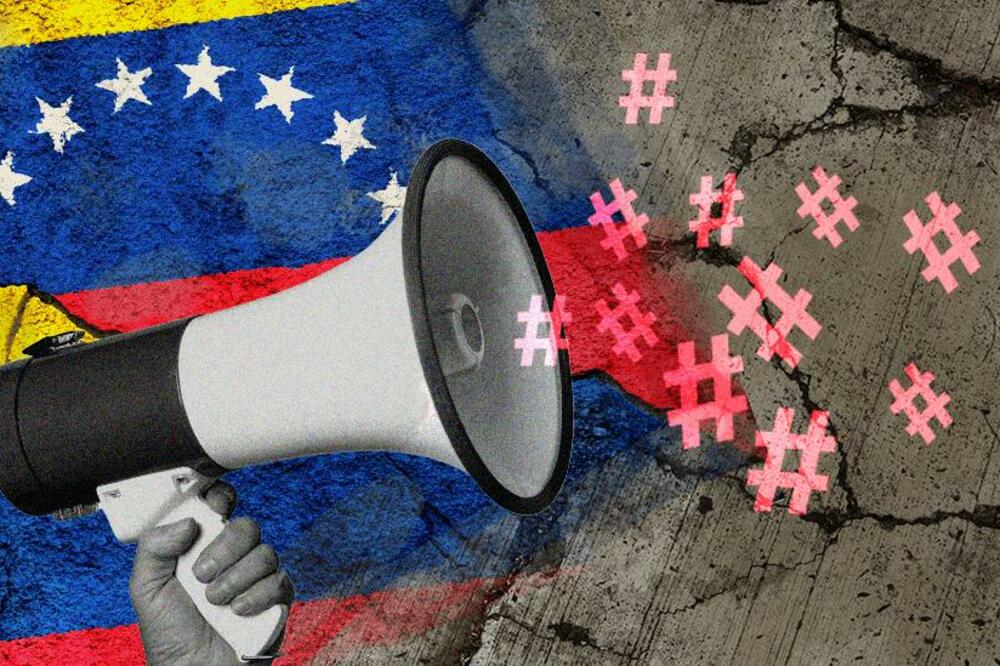Rafael - not his real name - is a big internet addict.
At the age of 59, he is active on all major social networks, deals with cryptocurrencies, and even calls himself an "influencer".
But that's not all he does online.
Rafael is also part of a group of Venezuelans who are paid by the state to tweet propaganda.
He spends at least 30 minutes a day posting pro-government content.
"The goal is to increase the visibility of information that the government posts on Twitter," he explains.
- Who is the hacker group Anonymous and why is it difficult to recognize its members
- Do Serbian politicians-Tiktokers worry about data security on this social network?
- The mystery of Putin's "superfans" on Facebook and their mission
Every day, Venezuela's Ministry of Telecommunications tweets a "hashtag of the day," which is repeated not only on the accounts of elected officials and state sympathizers, but also of "digital soldiers" like Rafael, who are paid to distribute propaganda.
“You have to time it properly so you don't get blocked. I do about 100 in the morning and about 100 in the afternoon," he says.
"The idea is to maintain a collective narrative. The fight against the enemy (the West) is still ongoing," explains Professor Felix Seihas from the Central University of Venezuela.
This narrative originates from a time before the emergence of social networks and is typical of the left-wing "Chavismo" ideology, which became popular under Hugo Chavez, the mentor and predecessor of the current President Nicolas Maduro.
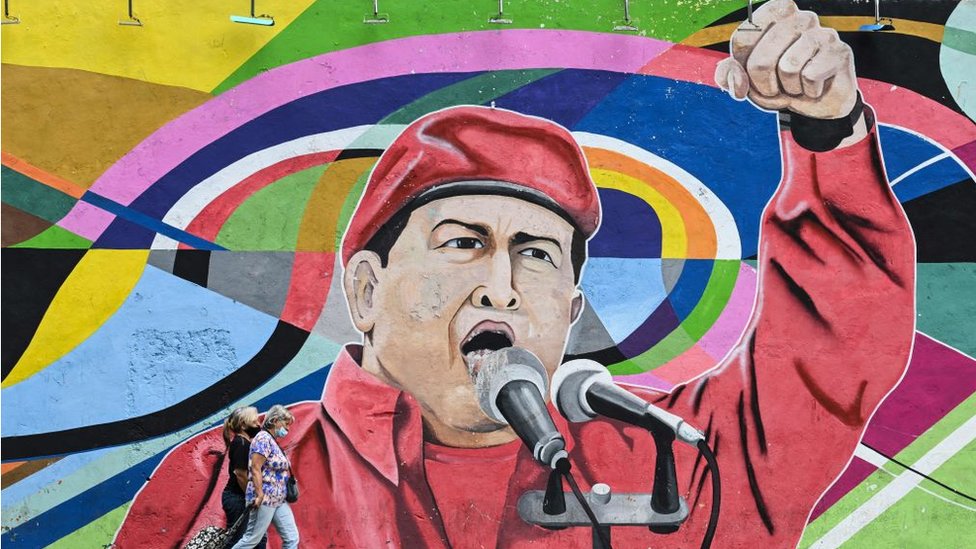
In 2018, Rafael came across a tweet with a hashtag that didn't make any sense.
"I asked the person who wrote the tweet what it was about and they told me it was about prizes."
The BBC has seen several private groups operating on Facebook and Telegram, with between 700 and 3.000 members, which share the latest hashtag to encourage people to tweet each other.
Not all participants join such groups, but Rafael plays an active role in one of them.
Despite frequently sharing content praising the government, he does not personally support it, due to arbitrary arrests, expropriations, low wages and Maduro's "absence of charisma".
He says he only tweets for paid incentives, but complains they're too low.
As a security guard in a private company, Rafael earns about $80 a month.
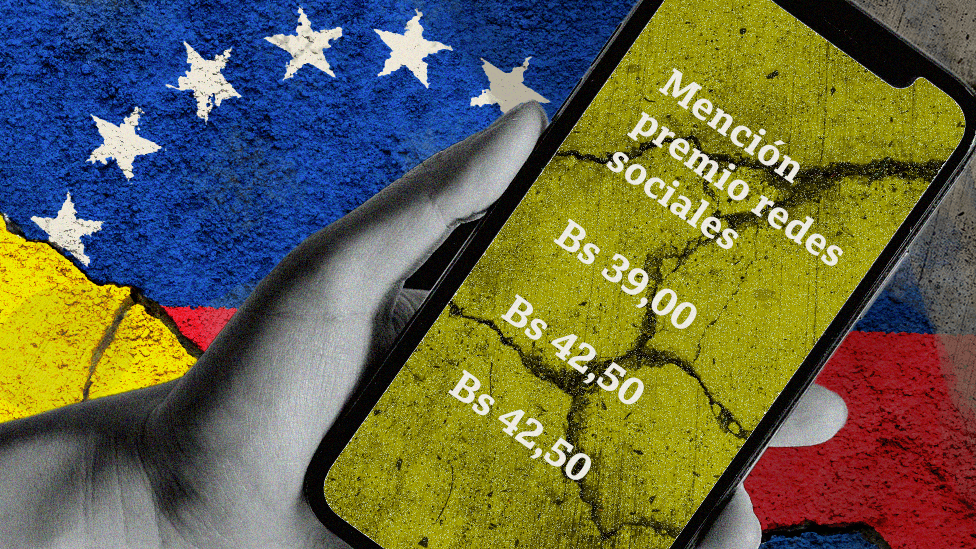
With the extra $10 he earns a month from tweeting, he can buy a small amount of flour, oil, rice or even internet for his mobile phone.
At first glance, the information it increases visibility seems innocuous, but Venezuelan disinformation experts and political analysts see it as part of an overall strategy to limit freedom of speech.
Adrian Gonzalez, founder Cazadores de Fake News, a website debunking Venezuelan disinformation, says the government is using propaganda to "neutralize information it cannot control" in an attempt to influence public perception online.
One way he can do this is by drowning out the noise of critics, especially on Twitter.
- The conflict in Ukraine is changing cyber warfare
- Canadian admits he worked as a hacker for the Russian cyber mafia
- Hackers linked to Russia make the most money in the world from cybercrime
Marivi Vasquez, of Probox, an NGO that fights online disinformation in Latin America, says the goal of using "digital soldiers" like Rafael is to disrupt the "trending" algorithm by polluting it with messages that glorify the government.
"This is very dangerous because when you see what's 'trending' and see that most of the hashtags are supposedly supporting the government, it's hard to know what's really going on in the country."
These hashtags are often part of larger campaigns to spread propaganda online.
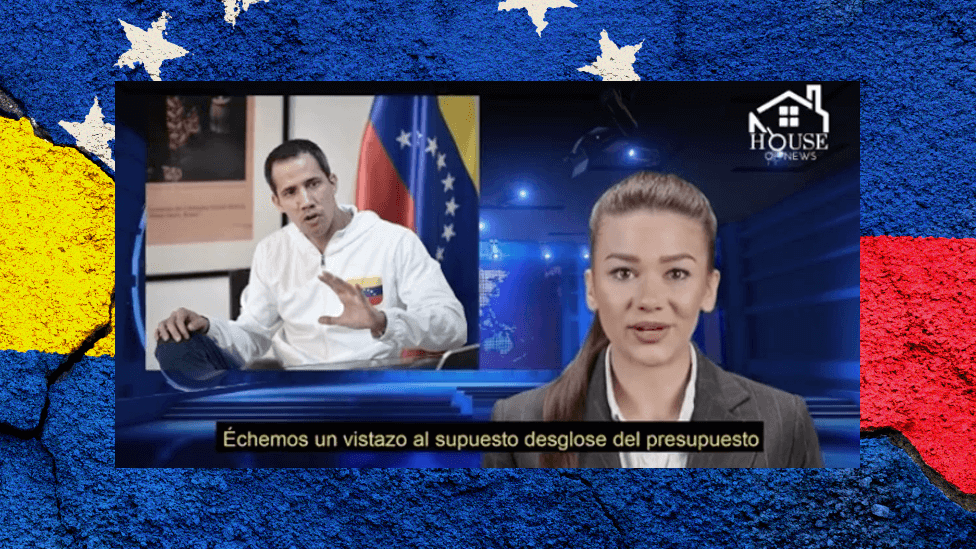
When the Venezuelan government was accused of using AI-generated footage to spread propaganda online earlier this year, it reacted quickly.
On Twitter, the Ministry of Communications announced that it was a hot day #SomosSocialIntelligence or WeAreSocialIntelligence ("We are social intelligence").
The goal was to spread allegations that supporters of "Chavismo" were behind the fake recordings broadcast on state television.
Rafael says he doesn't spread misleading ideas and doesn't remember tweeting the "social intelligence" hashtag.
He can't verify that because his main account, which had more than 14.000 followers, was shut down by Twitter for not following the guidelines, he admits.
However, we know that the hashtag has caught on.
According to the analysis of Proboks, the hashtag #SomosSocialIntelligence it was used more than 24 times in 360.000 hours and trended on Twitter in Venezuela.
The analysis also showed that 90 percent of interactions with the hashtag came from accounts characterized as bots or a "digital army" paid to spread government propaganda.
Rafael sent us proof of the payments he received in exchange for tweeting propaganda.
These are screenshots of money transfers made in the Sistema Parita application for social security created by the government, which provides Venezuelans with access to subsidies and allows them to receive, among other things, public salaries and state pensions.
From March to April, his statements show he earned nearly $10.
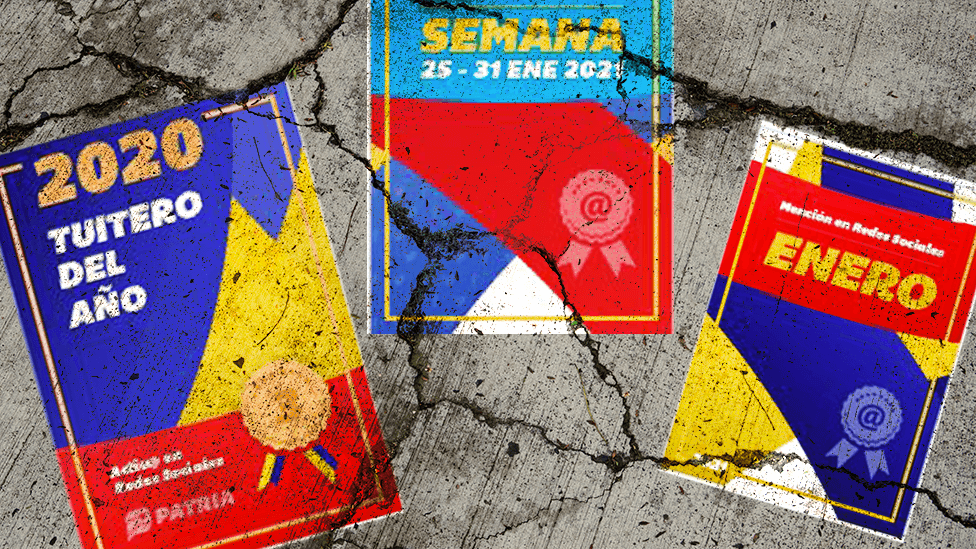
According to experts from Proboks who have studied payments through the app, paid propagandists give Sistema Parita app access to their data so they can be tracked.
Depending on their activity on Twitter, the "digital army" receives a monthly bonus in their digital wallet.
The BBC asked the Venezuelan government why it pays citizens to tweet propaganda.
We also asked if it actively uses deepfake technology to spread propaganda, but we did not receive any response.
Although it is not clear whether the government was in any way involved in the production of fake news reports, it is clear that it ran campaigns to drown out criticism, which may have included paid propagandists.
"It's a paradox," explains Gonzalez.
"A lot of people do it because they have to eat, they need money for internet or because they don't have good access to public services."
We tried to talk to several paid propagandists, but some were too embarrassed to make a statement, and others feared for their own safety.
Rafael's openness is an exception.
Watch the video:
Follow us on Facebook,Twitter i Viber. If you have a topic proposal for us, contact us at bbcnasrpskom@bbc.co.uk
Bonus video:



